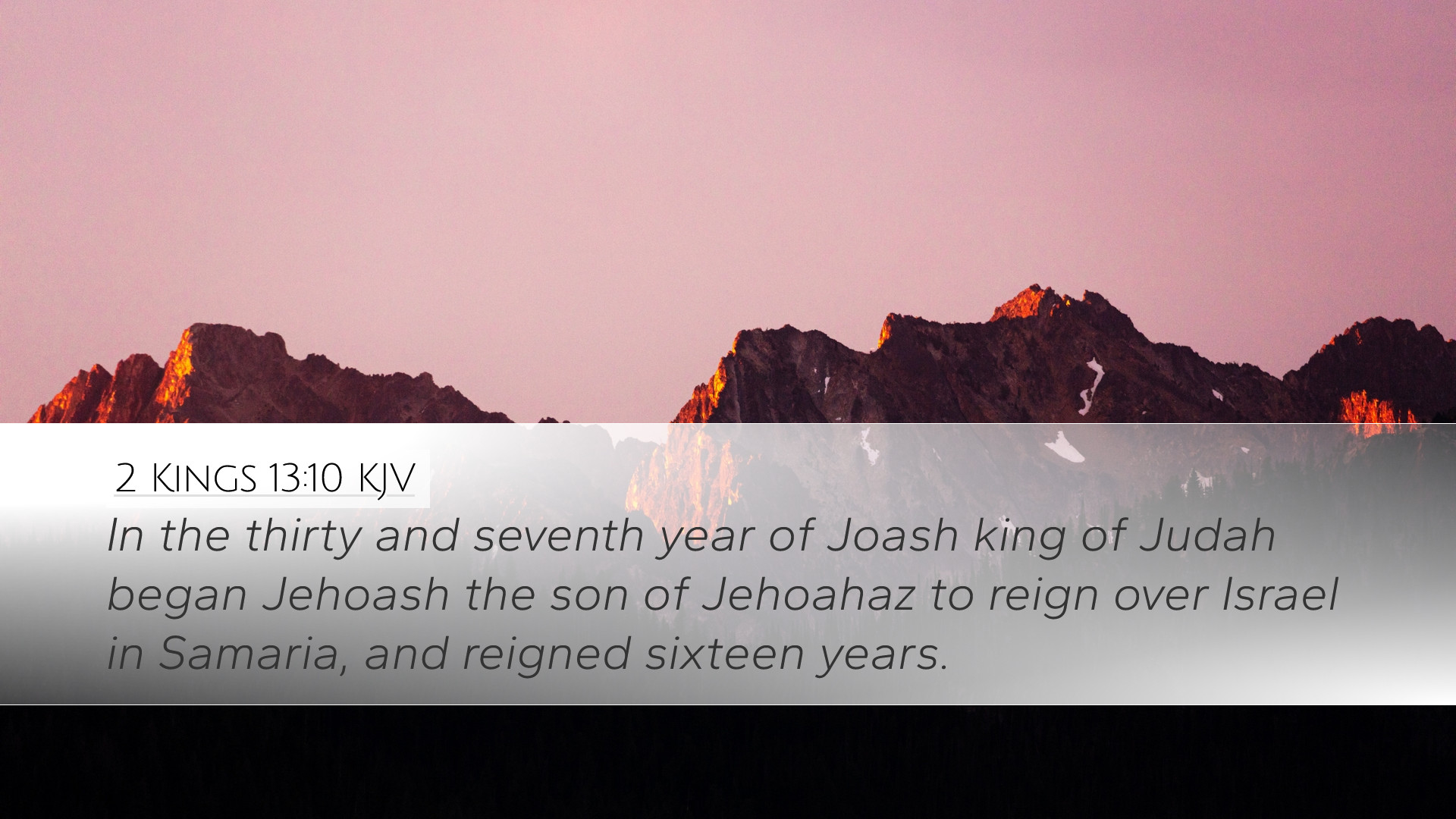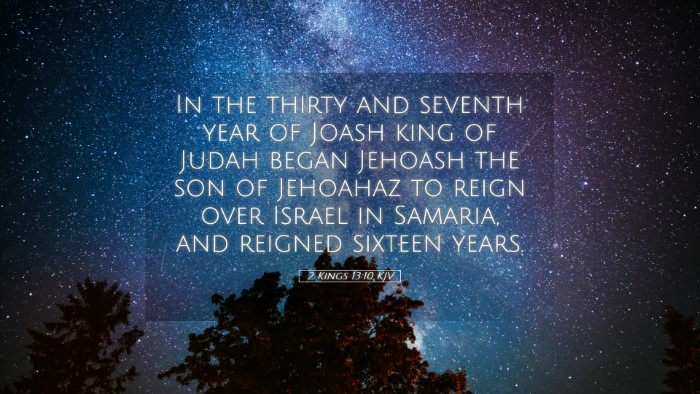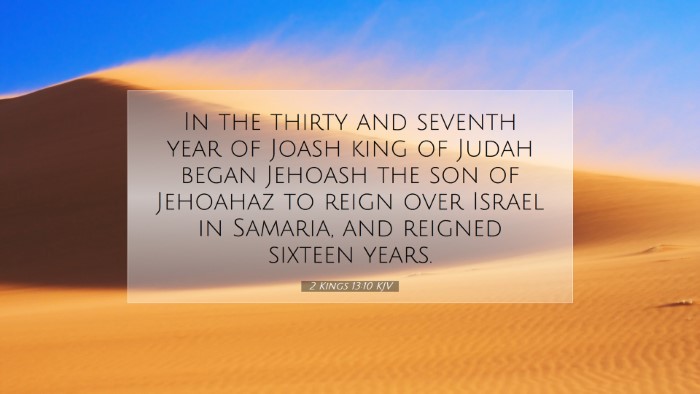Commentary on 2 Kings 13:10
Verse Context: 2 Kings 13:10 states, "In the thirty and seventh year of Joash king of Judah began Jehoash the son of Jehoahaz to reign over Israel in Samaria, and reigned sixteen years." This verse marks the transition of power in the Kingdom of Israel and provides historical context to the sequence of events within the Hebrew Scriptures.
Historical Background
This period occurs during a tumultuous time in Israel's history where leadership shifts and national integrity are constantly challenged by internal strife and external threats. Jehoash, also known as Joash, rules over Israel after the reign of his father Jehoahaz. Jehoahaz himself had ruled under dire circumstances, marked by military losses and oppression from foreign powers, particularly the Arameans.
Commentary Insights
- Matthew Henry: Henry emphasizes the significance of the timing of Jehoash's reign. This verse signals both a continuity of the house of Jehu and a critical juncture for Israel where divine mercy may still be anticipated despite their transgressions. Jehoash's reign is marked by a mixture of triumphs and failures, reflective of the national spiritual condition.
- Albert Barnes: Barnes draws attention to the political dynamics present at the time of Jehoash's ascension. He highlights the possible encouragement from Judah's stability under King Joash, which may instill a sense of hope during Jehoash's rule. As a king, Jehoash’s political decisions reflect both his character and the influences around him, suggesting that leadership can be influenced by external circumstances as well as personal faith.
- Adam Clarke: Clarke explores the implications of royal succession and the theological message embedded within the change of leadership. He notes how the text offers a reminder of God’s sovereignty in appointing rulers, and emphasizes the cyclical nature of Israel's kingship—where each ruler is held accountable to God for his actions. Jehoash inherits a legacy shaped by both idolatry and attempts at reform, indicating the complex interplay between human choices and divine providence.
Theological Reflections
The reign of Jehoash serves as a poignant reminder of God's longsuffering despite human disobedience. The themes of hope, redemption, and accountability weave through the narrative as Jehoash steps onto the throne during a challenging era. Scholars note that while Israel sought to maintain their identity amidst various external threats, their spiritual fidelity fluctuated, often leading to national decline.
Hopes and Challenges of Leadership
The verse also inspires reflection on the nature of leadership. Jehoash's eighteen-year reign, though providing some stability, ultimately questions how rulers respond to their circumstances. It poses a challenge for modern readers: how do today's leaders navigate their contexts? The synthesis of divine guidance and human action remains a crucial consideration in leadership.
Applications for Today
- Encouragement for Leaders: The passage stands as a crucial encouragement for pastors and leaders today, reaffirming the need for resilience and faithfulness amidst trials.
- Lessons in Governance: It provides important lessons for political figures and students of governance, reminding them of the profound ethical responsibilities associated with power.
- Spiritual Accountability: As theological reflection suggests, individuals are encouraged to consider their own accountability before God, emphasizing that leadership is more than governance—it's a divine calling.
Concluding Thoughts
2 Kings 13:10 encapsulates a critical moment in Israel's history where divine sovereignty intersects with human responsibility. As we meditate on this verse and its implications, let us be reminded that God remains actively involved in the affairs of nations and individuals. The legacies of leadership, both good and bad, offer timeless lessons that speak to the faithfulness of God, the challenges of sin, and the hope for future generations.


